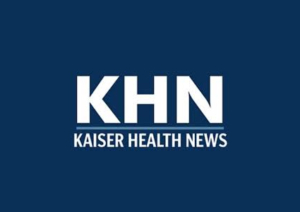Medicare Advantage Permitted to Address Non-medical Needs
Starting in 2020, Medicare Advantage plans will be permitted to provide non-medical benefits to their chronically ill members.
 As described in the Centers for Medicare & Medicaid Services’ “final call letter’ for 2020,
As described in the Centers for Medicare & Medicaid Services’ “final call letter’ for 2020,
MA [Medicare Advantage] plans are not prohibited from offering an item or service that can be expected to improve or maintain the health or overall function of an enrollee only while the enrollee is using it. In other words, the statute does not require that the maintenance or improvement expected from an SSBCI [special supplemental benefits for the chronically ill] result in a permanent change in an enrollee’s condition. Items and services may include, but are not limited to: meals furnished to the enrollee beyond a limited basis, transportation for non-medical needs, pest control, air quality equipment and services, and benefits to address social needs, so long as such items and services have a reasonable expectation of improving or maintaining the health or overall function of an individual as it relates to their chronic condition or illness.
The CMS final call letter offers permission to Medicare Advantage plans to offer such services; it does not require them to do so.
Such a policy change could be highly beneficial to many of the low-income patients served by Pennsylvania safety-net hospitals, which have long sought help with addressing the social determinants of health that often bring patients to them but limit their ability to recover from their illnesses and injuries.
Learn more from the Commonwealth Fund report “New Medicare Advantage Benefits Offer Social Services to People with Chronic Illness” and see CMS’s “Announcement of Calendar Year (CY) 2020 Medicare Advantage Capitation Rates and Medicare Advantage and Part D Payment Policies and Final Call Letter.”
 While the court conceded that CMS has the authority to address 340B payments, it found that CMS’s drastic payment cuts, introduced in FY 2018, “…fundamentally altered the statutory scheme established by Congress…” for determining 340B payment rates.
While the court conceded that CMS has the authority to address 340B payments, it found that CMS’s drastic payment cuts, introduced in FY 2018, “…fundamentally altered the statutory scheme established by Congress…” for determining 340B payment rates. According to Kaiser, for-profit companies that sub-contract with Medicaid managed care organizations to review requests for services often deny care to Medicaid patients to save money for the MCOs that employ them and to benefit themselves financially.
According to Kaiser, for-profit companies that sub-contract with Medicaid managed care organizations to review requests for services often deny care to Medicaid patients to save money for the MCOs that employ them and to benefit themselves financially.
 An early November bulletin from CMS, however, clarifies that this approach is still permissible, which is good news for Pennsylvania safety-net hospitals and SNAP members hoping to benefit from the state’s hospital assessment.
An early November bulletin from CMS, however, clarifies that this approach is still permissible, which is good news for Pennsylvania safety-net hospitals and SNAP members hoping to benefit from the state’s hospital assessment. According to the news release, those changes include:
According to the news release, those changes include: Pennsylvania has safety-net hospitals in both urban and rural areas and many of the communities they serve have access-to-care problems that might benefit from greater access to telehealth services.
Pennsylvania has safety-net hospitals in both urban and rural areas and many of the communities they serve have access-to-care problems that might benefit from greater access to telehealth services.